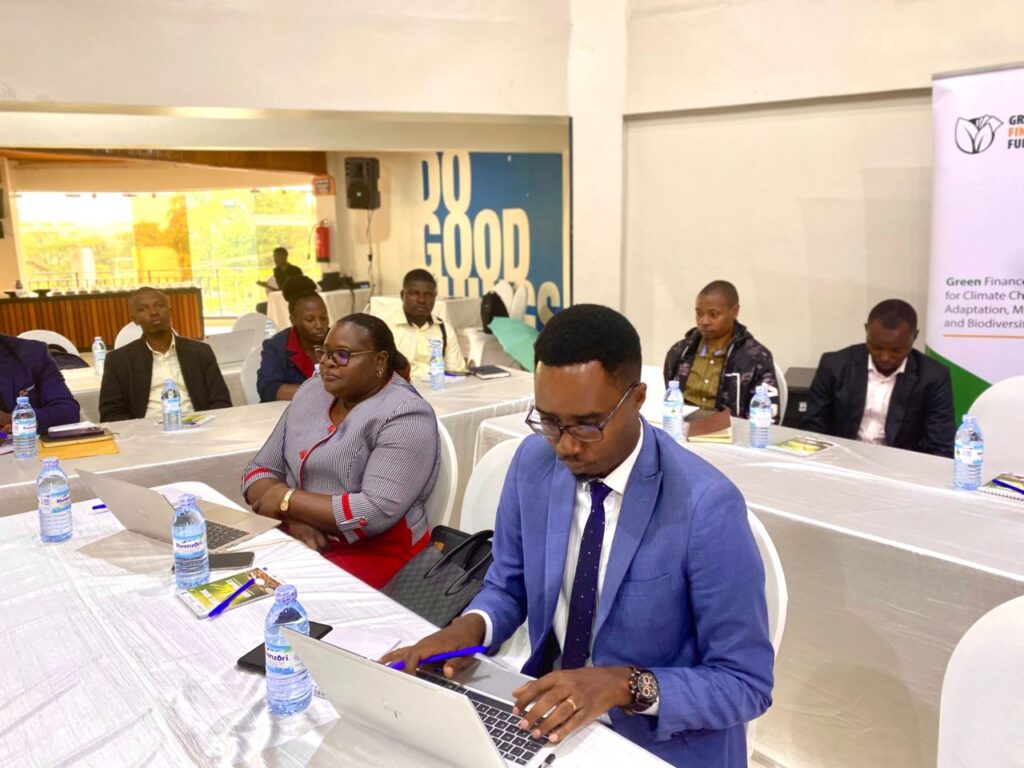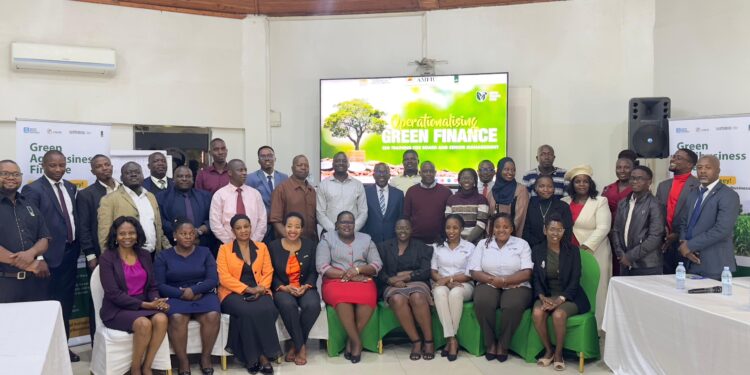Agricultural Business Initiative (aBi) Finance Limited has rolled out a vital Environmental, Social, and Governance (ESG) training programme at the Fairway Hotel in Kampala, aimed at equipping board members and senior management from Tier 4 Financial Institutions with practical tools to integrate sustainability into their strategies and operations, while breaking down misconceptions surrounding ESG principles.
David Kaweesi, Manager for Investment Financial Services Development at aBi Finance, underscored the urgency of embracing ESG. “The world today is not what it was 100 years ago, and it won’t be the same 50 years from now if our actions don’t change,” Kaweesi said.
“Institutions may already be strong on governance or social engagement, but we must take a holistic approach. ESG should no longer be seen as a foreign concept—it is relevant, local, and necessary.”
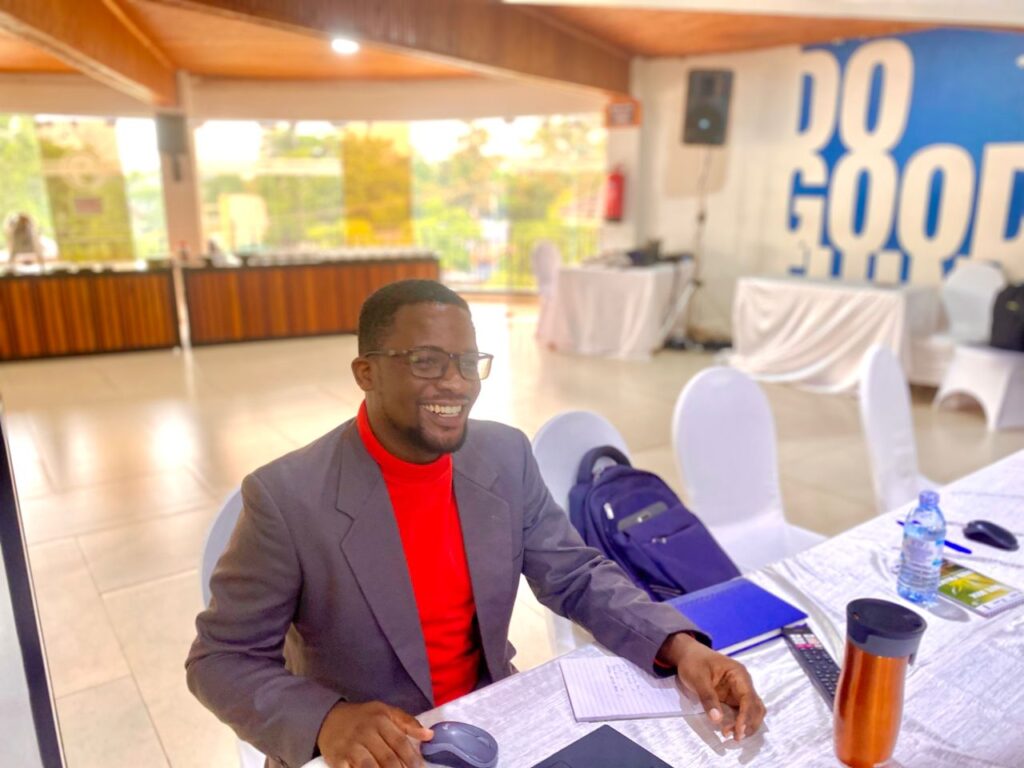
Kaweesi emphasised the need for financial institutions to deliberately scale up their efforts, particularly in environmental and social inclusion. “We often think that losing a client in a charcoal business is losing portfolio value,” he explained. “But what about when floods destroy roads and the very assets we finance? That’s why financial institutions must lead in environmental stewardship, not just follow.”
He added that adaptation and mitigation finance are already being practised, often unknowingly. “When we fund drought-resistant seeds or support farmers using organic fertilisers, we are implementing ESG,” Kaweesi said. “But without formal policies and reporting structures, it becomes difficult to measure or scale.”
Mercy Sande Ainomugisha, Chief Executive Officer of VisionFund Uganda, highlighted the importance of mainstreaming ESG in microfinance institutions.“ESG is not just a framework—it must be part of our DNA,” she said.

“One of my key takeaways from this training is the need to develop a specific ESG policy, align it with our strategic plan, and ensure staff are fully on board. The tone has to be set from the top.”
Ainomugisha emphasised that product development should be grounded in real customer needs and backed by adequate research. “We cannot design financial products in isolation,” she noted. “They must reflect our understanding of what marginalised communities, youth, and women truly need.”
Bangi David, CEO of Uganda Microcredit Foundation, spoke candidly about the progress and challenges in implementing ESG policies, including limited government support.
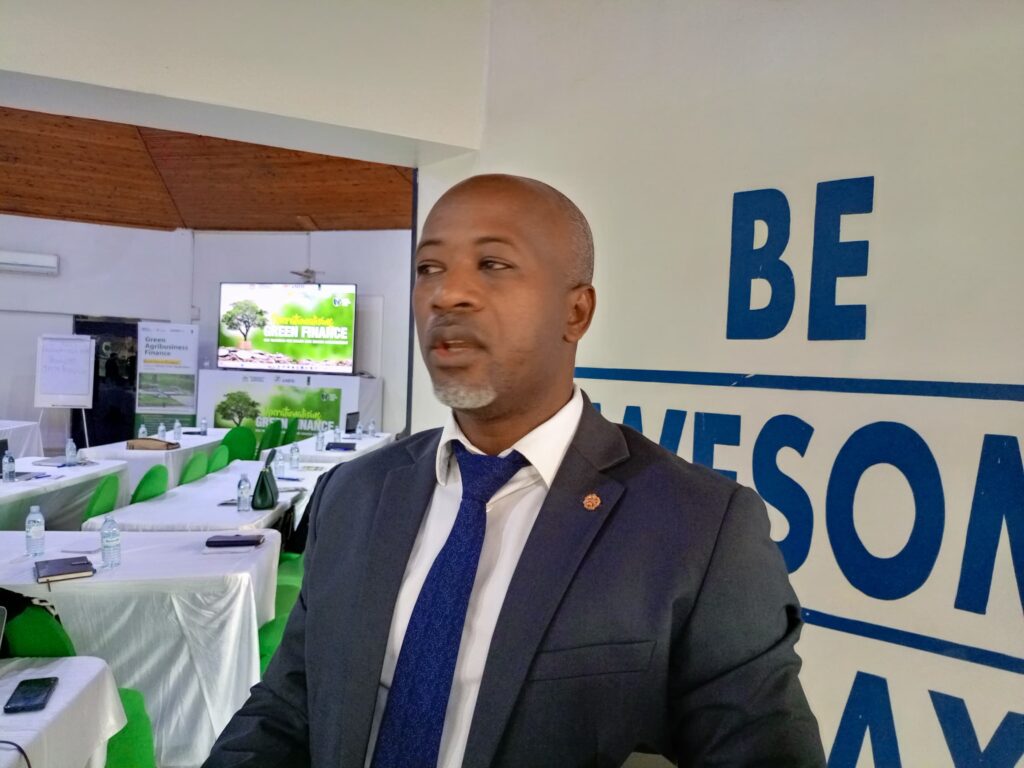
“We started crafting our ESG strategy in 2024. We’ve trained staff and streamlined efforts around sanitation and clean water,” Bangi said. “But the lack of government backing is a major hurdle. Environmental degradation continues—look at the northern bypass that cut through wetlands, yet no action was taken.”
Bangi called for stronger alignment between national policies and ESG priorities. “Decisions are still being made for short-term political or economic gain, often at the cost of our environment,” he warned. “Government needs to walk the talk on sustainability.”
Jane Aik, an ESG Consultant, delivered a compelling message about institutional trust and the personal responsibility of financial leaders in promoting ESG principles.
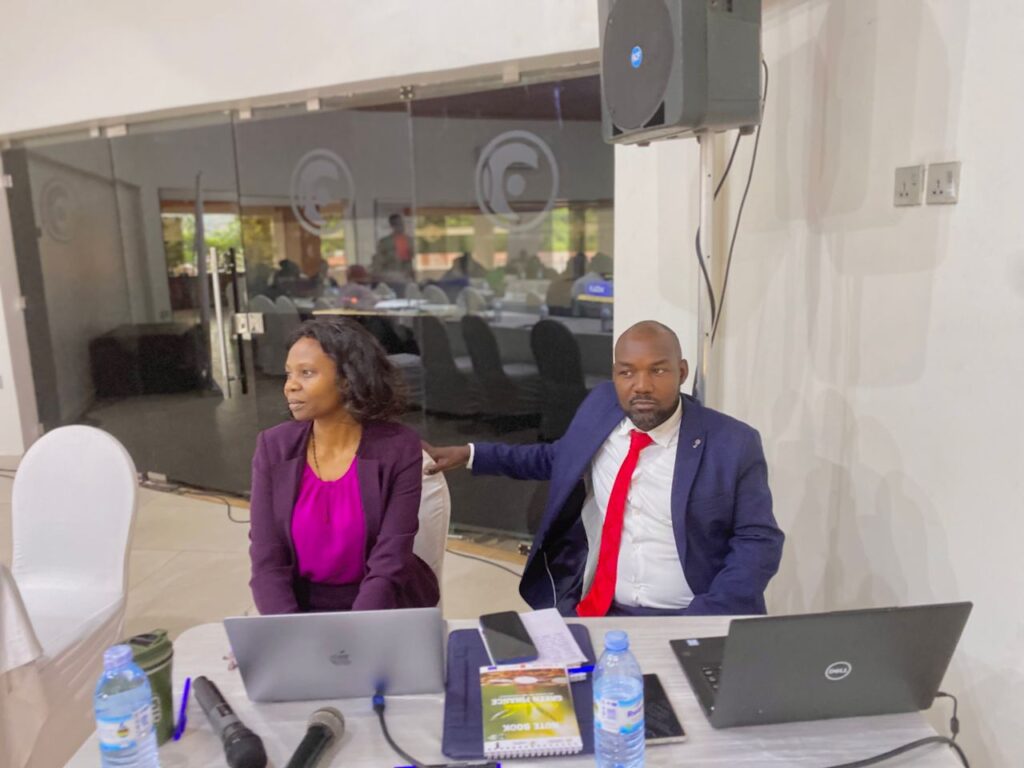
“ESG isn’t just about frameworks—it’s about trust. Clients trust us with their money, and that trust must be earned through transparency, inclusion, and integrity,” Aik said. “It starts with each one of us, not just the boardrooms. If we don’t uphold these values ourselves, how can we expect the institutions we lead to follow?”
She called for deliberate action beyond compliance. “Governance is often well-covered due to regulation, but we need to elevate the ‘E’ and ‘S’—the environmental and social aspects—especially in green lending and financial inclusion,” she added. “Reducing costs and improving operational efficiency isn’t just about cutting corners. It’s about doing business better and sustainably.”
Musasira Cassius, an ESG Consultant, emphasised that ESG is not a foreign or imported concept, but one deeply embedded in African values and community life. “When we care for our people, lead with integrity, and support our communities—this is already ESG in practice,” Musasira said. “It’s not just theory. It’s happening when you plant a tree, switch to clean energy, or empower youth and women. That’s ESG rooted in our culture.”
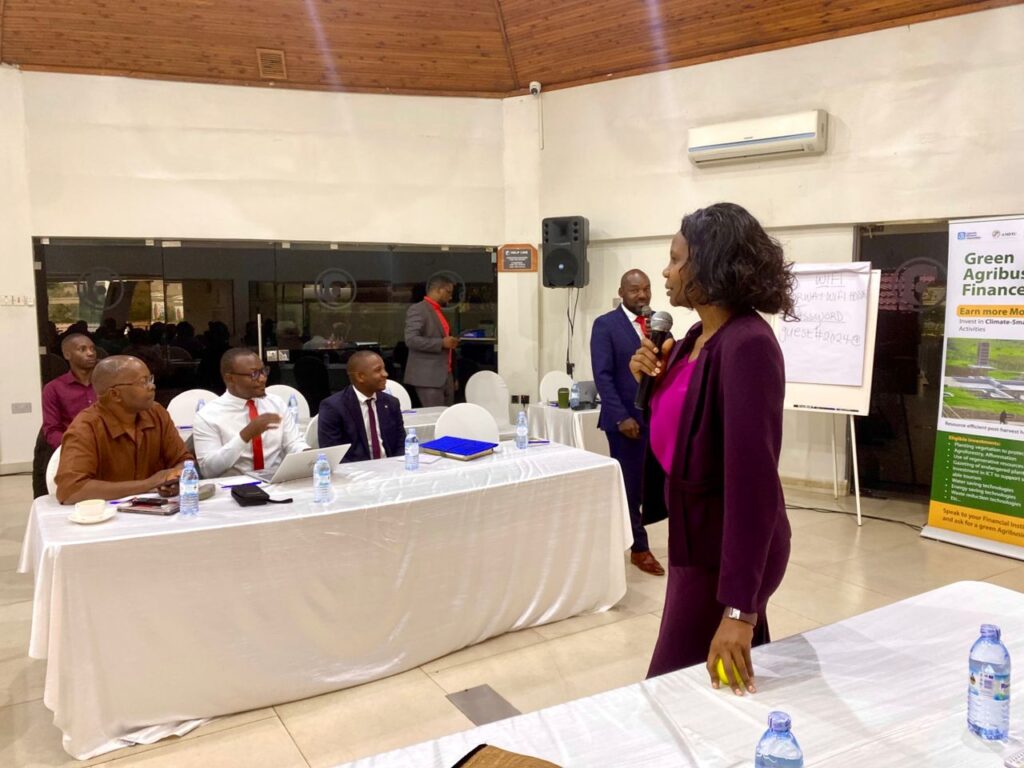
He stressed the importance of recognising and scaling what is already being done at local levels. “Let’s stop thinking ESG is only for big banks or international investors. Whether you’re supporting farmers, holding transparent AGMs, or running financial literacy sessions—that’s ESG. It’s ours. We just need to formalise it,” he added.
The training highlighted the need for board members and executives to take ownership of ESG implementation. Facilitators urged participants to revise their institutions’ missions, develop clear ESG strategies, and allocate resources toward practical initiatives such as green loan products and inclusive lending.
The session also clarified that ESG is not synonymous with corporate social responsibility (CSR), but rather a performance-driven approach tied to measurable outcomes in environmental sustainability, social impact, and corporate governance.
